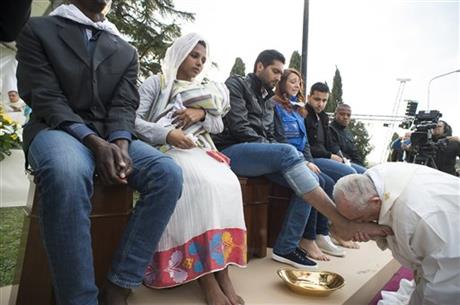The last supper under Roman domination during the first century
 Subversive Meals examines the Lord's Supper within the sociopolitical context of first-century Roman domination, and concludes that it was an anti-imperial praxis. Although the Christian communal meal looked much like a typical Roman banquet in structure, with a deipnon and a symposion, it was essentially different.
Subversive Meals examines the Lord's Supper within the sociopolitical context of first-century Roman domination, and concludes that it was an anti-imperial praxis. Although the Christian communal meal looked much like a typical Roman banquet in structure, with a deipnon and a symposion, it was essentially different.The Roman meal supported the empire's ideology, honored Caesar and the gods, reinforced stratification among the masses, and upheld Rome's right to rule the world.
The Christian meal, on the other hand, included hymns that extolled Jesus as Lord, prophecies that challenged Rome's ideological claims, and letters-read aloud-that promoted egalitarianism and instructed believers on how to live according to kingdom of God principles. Hence, the Christian banquet was an act of nonviolent resistance, or what James C. Scott calls a "hidden transcript"
Description from Amazon
Very interesting read. Fairly scholarly. Would have liked to read it again, but it was an inter-library loan and needed to be returned. Nonetheless, it is intriguing to understand Jesus' words from a completely different perspective and whether one agrees with it or not, it does make one think about communion / Eucharist today, and how far it is from being an act of nonviolent resistance...
In many places, it seems that the church, corporations, and government are aligned and allied in holding onto power and maintaining the status quo.
Subversive Meals: An Analysis of the Lord's Supper under Roman Domination during the First Century
R. Alan Streett
2013













